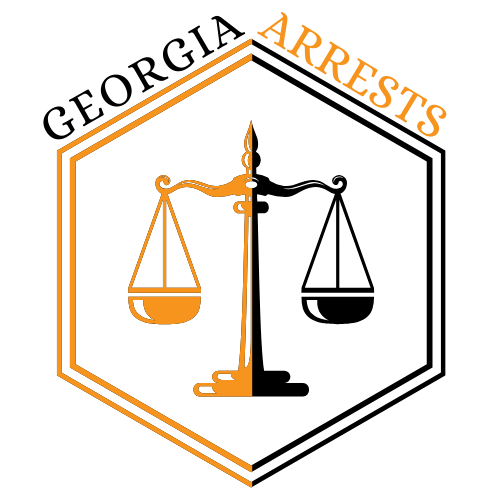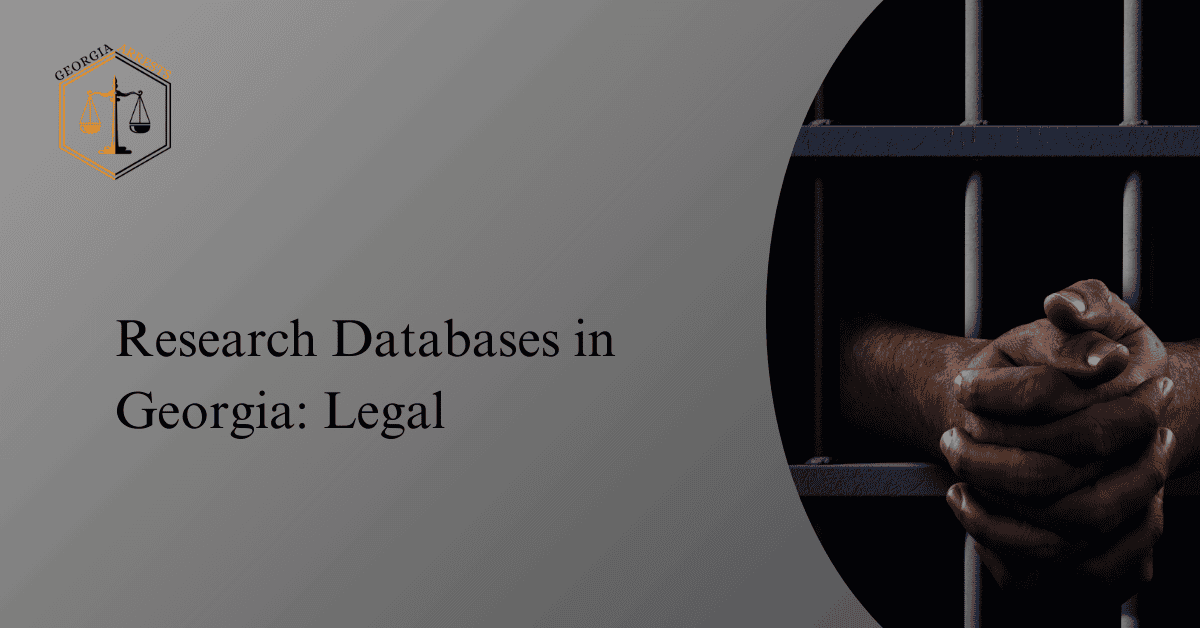Research Databases in Georgia: Legal
Research databases in Georgia provide valuable legal information for individuals, professionals, and organizations seeking reliable resources. These databases offer a wide range of legal data, including statutes, case law, regulations, and more, specific to the state of Georgia. Whether you are a student, lawyer, researcher, or simply curious about legal matters, these databases can be a crucial tool in accessing accurate and up-to-date information.
With a focus on legal content related to Georgia, these research databases cater to the specific needs of those interested in the state’s laws and regulations. By utilizing these resources, users can enhance their understanding of legal issues, stay informed about recent developments, and conduct comprehensive research on various topics. Whether you are conducting academic research, preparing a case, or simply exploring legal matters, these databases can serve as a valuable asset in your quest for reliable legal information.
Benefits of Georgia Legal Research Databases
Georgia legal research databases offer invaluable benefits, providing comprehensive access to legal precedents, statutes, and case law specific to the state. These resources streamline legal research processes for lawyers, scholars, and students, ensuring accurate and up-to-date information retrieval. By centralizing vast amounts of legal data, these databases empower users to conduct thorough analyses, strengthen arguments, and make well-informed decisions within Georgia’s legal framework.
Access to Statutes, Case Law, and Regulations
Legal research databases in Georgia provide users with access to a wide range of statutes, case law, and regulations. These databases serve as a valuable resource for individuals seeking to understand and interpret the legal landscape in Georgia. By having access to this wealth of information, users can stay informed about the laws governing various aspects of life in the state.
Crucial Tool for Students, Lawyers, and Researchers
Whether you are a student, lawyer, or researcher, legal research databases in Georgia are a crucial tool for conducting in-depth research on legal matters. These databases offer a comprehensive collection of resources that can aid in legal analysis, case preparation, and academic research. By utilizing these databases, users can enhance their understanding of complex legal issues and stay up-to-date on recent developments in the field.
Enhancing Understanding of Legal Issues
Legal research databases in Georgia play a key role in enhancing users’ understanding of legal issues. By providing access to statutes, case law, and regulations, these databases enable users to delve deep into legal concepts and principles. This, in turn, empowers users to make informed decisions, navigate legal complexities, and advocate for their rights effectively.
Staying Informed about Recent Legal Developments
One of the significant benefits of legal research databases in Georgia is the ability to stay informed about recent legal developments. These databases are regularly updated to reflect changes in laws, court decisions, and regulations. By staying abreast of these developments, users can ensure that their research and analysis are based on the most current and accurate information available.
Conducting Comprehensive Research on Various Topics
Legal research databases in Georgia offer users the opportunity to conduct comprehensive research on a wide range of legal topics. Whether you are interested in family law, business law, or constitutional law, these databases provide access to a diverse array of resources that cater to different areas of legal practice and scholarship. This enables users to explore legal matters from multiple perspectives and gain a holistic understanding of the legal landscape in Georgia.
Valuable Asset for Academic Research and Case Preparation
For students, lawyers, and researchers alike, legal research databases in Georgia serve as a valuable asset for academic research and case preparation. These databases offer a treasure trove of resources that can support scholarly endeavors, legal arguments, and case strategies. By leveraging these databases effectively, users can bolster their research efforts, strengthen their legal arguments, and enhance their overall professional practice.
Investigating Legal Matters with Accurate and Up-to-Date Information
Legal research databases in Georgia provide users with access to accurate and up-to-date information on a wide range of legal matters. By utilizing these databases, users can explore legal issues, analyze legal trends, and track changes in the legal landscape with precision. This ensures that users are equipped with the most reliable and current information needed to make informed decisions, conduct thorough research, and navigate legal challenges effectively.
By leveraging the benefits of legal research databases in Georgia, users can gain a competitive edge in their academic pursuits, legal practice, and research endeavors. These databases offer a wealth of resources that empower users to enhance their understanding of legal issues, stay informed about recent developments, and conduct comprehensive research on various legal topics. Whether you are a student, lawyer, or researcher, legal research databases in Georgia are an indispensable tool for navigating the complex and dynamic field of law.
Frequently Asked Questions
Our Frequently Asked Questions section aims to provide detailed information and answers to common queries regarding Research Databases in Georgia: Legal.
What are legal research databases?
Legal research databases are online platforms that provide access to a wide range of legal resources, including case law, statutes, regulations, and legal articles.
How can I access legal research databases in Georgia?
In Georgia, legal research databases can be accessed through law libraries, universities, and online subscription services such as LexisNexis or Westlaw.
What types of information can I find in legal research databases?
Legal research databases contain a wealth of information, including court decisions, legislative history, legal commentary, and analysis on various legal topics.
Are legal research databases in Georgia free to access?
While some legal research databases offer limited free access, comprehensive databases usually require a subscription or access through a legal institution.
How can legal research databases help with my legal case?
Legal research databases provide valuable resources for conducting case law research, analyzing legal precedents, and staying updated on recent legal developments that can significantly impact your legal case.
Are legal research databases accessible to public without legal expertise?
Legal research databases are designed to be user-friendly, with search functionalities, filters, and algorithms that help individuals navigate through complex legal information, making them accessible to users with varying levels of legal expertise.







